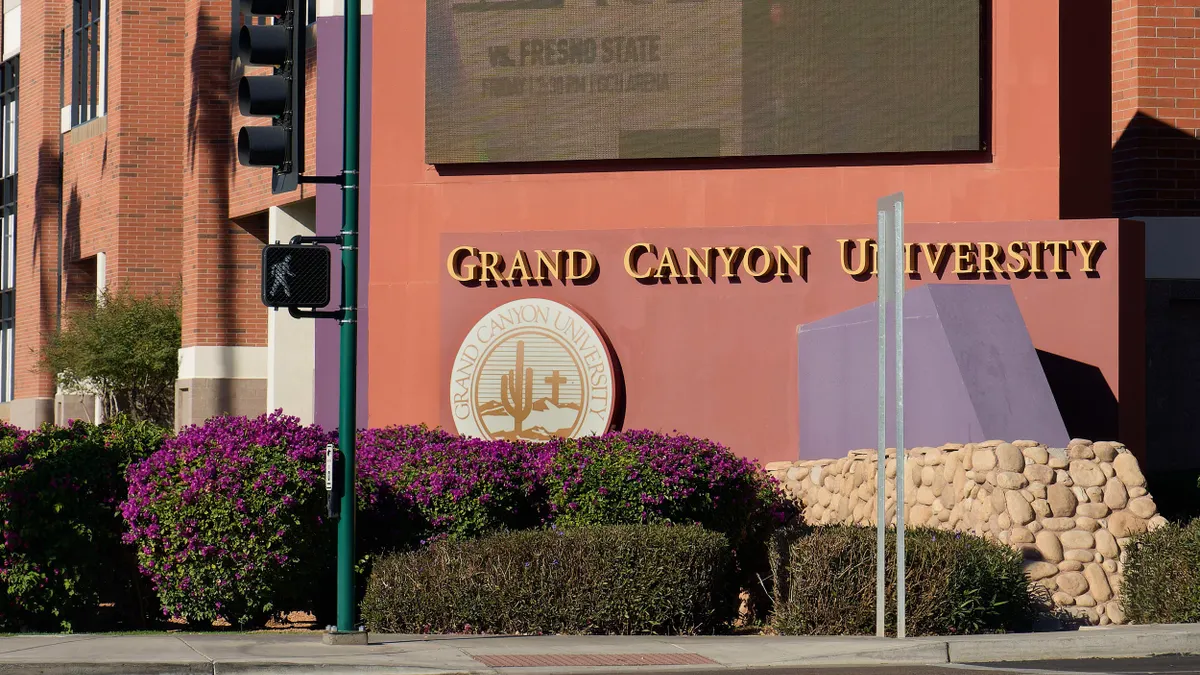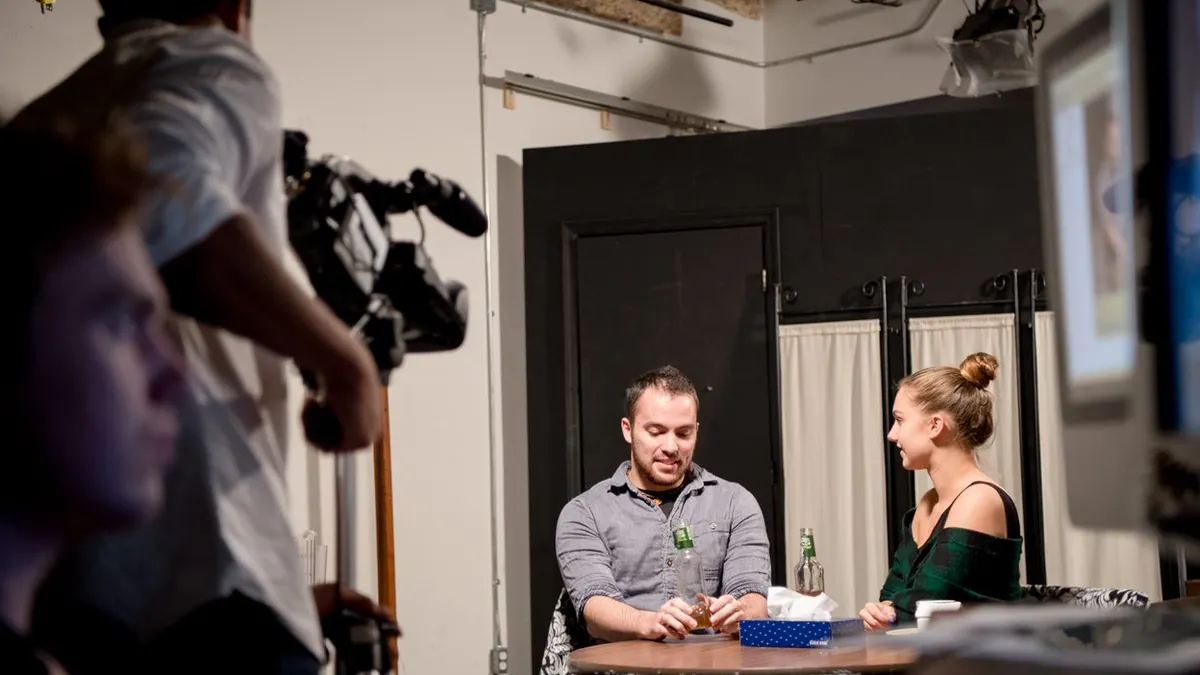The University of Idaho got the green light from the state’s board of education Thursday to pursue a $550 million acquisition of the University of Phoenix, a for-profit whose enrollment has plunged amid chronic allegations of illegal recruiting and marketing practices.
Still, Idaho board members voiced support for the deal, arguing that bringing the 85,000-student institution into the University of Idaho’s orbit would help expand the state’s educational access and stave off an expected decline in traditional college-aged students. The board did not take public comments during the meeting.
“We’re going to face an enrollment cliff,” board member Kurt Liebich said. “We’ve got to be bold and innovative.”
But higher education experts have been more skeptical, suggesting the University of Idaho’s leaders are about to enter a political and reputational minefield as they pursue the acquisition. Not only will they have their work cut out for them answering questions about the University of Phoenix’s checkered past, they could also take on the for-profit college’s unknown, but potentially expensive, liabilities.
Some of those issues have already begun to surface. The editorial board of the Idaho Statesman newspaper argued Thursday that the education board should defer action on the acquisition, saying the breakneck pace of the deal hasn’t provided adequate time to vet it. News of the acquisition made headlines only one day before the board of education’s meeting.
“If that means the deal falls through, so be it,” the editorial board wrote.
Meanwhile, in a letter Thursday, several national higher education advocacy organizations and for-profit critics urged the University of Idaho’s governing board to further investigate whether the transaction was worth pursuing, given the University of Phoenix’s history of poor student outcomes and allegations it has used deceptive recruiting practices.
The for-profit has faced a string of lawsuits and government investigations, including a $191 million settlement in 2019 with the Federal Trade Commission over accusations that it produced misleading advertisements.
Higher education experts expect even more resistance to the deal from for-profit critics and others to follow
“I hope they’re prepared for the massive campaign against approval that’s about to get started,” said Phil Hill, an educational technology consultant and market analyst. Opponents "are going to go hard to prevent this deal from happening.”
What does the deal entail?
Idaho’s board of education approved the University of Idaho’s plans to create a nonprofit corporation, called NewU, to acquire the University of Phoenix. The University of Idaho, which enrolled around 11,000 students in fall 2021, plans to finance the deal by selling $685 million worth of bonds — meaning funding won’t come from the institution’s budget.
Most of that money, $550 million, would go toward the purchase price of the for-profit college, while the remainder would be used for working capital and reserves for the new corporation, as well as the costs associated with issuing the bonds. The University of Phoenix’s owners plan to kick in $200 million in cash for the new corporation.
The proposal calls for the nonprofit corporation to pass on $10 million to the University of Idaho each year.
The acquisition is anticipated to wrap up early next year, according to the University of Idaho. The U.S. Department of Education, as well as both institutions’ accreditors, would need to sign off on the acquisition.
As part of the deal, the University of Idaho expects to convert the University of Phoenix from a for-profit college to a nonprofit institution. However, this process isn’t as simple as just transferring ownership of the college to a nonprofit corporation.
The Education Department will have to sign off on the change, and the agency is likely to scrutinize these types of deals more closely after new regulations governing nonprofit conversions take effect in July.
The agency also hasn’t always approved such transitions.
Take Grand Canyon University. In 2018, it split off from a for-profit company, and a nonprofit corporation took ownership. As part of the transaction, Grand Canyon asked the Education Department to convert it from a for-profit college to a nonprofit one.
But the Education Department rejected that bid in 2019, citing an ongoing financial relationship Grand Canyon has with its former for-profit owners. The department’s decision means the university is subject to regulations governing federal financial aid at for-profit colleges, even though the institution is recognized as a nonprofit by the IRS.
Unlike the Grand Canyon University situation, the deal to acquire the University of Phoenix doesn’t appear to include an ongoing financial relationship with the institution’s current owner, private equity firm Apollo Global Management. But higher education experts still say the planned nonprofit conversion isn’t necessarily a slam dunk.
“I can easily see it being similar to Grand Canyon’s conversion, where the IRS gives one ruling, the Department of Ed gives another,” Hill said.
Andrea Smiley, a spokesperson for University of Phoenix, said via email that the institution is aware the deal must comply with new Education Department regulations regarding nonprofit conversions and plans to work with all regulators to ensure they have the information needed.
“Unlike other recent transitions of for-profit universities to non-profit status, no private beneficiaries, previous owners or for-profit affiliates will remain associated with the university moving forward,” Smiley said.
The Education Department declined to comment on the deal and potential nonprofit conversion.
Is it a guaranteed moneymaker?
University of Idaho officials have touted the proposal as a way to pour money into the public institution and invest in bettering student outcomes.
“The affiliation will diversify our revenue streams, provide greater economic stability for delivery of educational opportunities and generate positive annual cash flow,” University of Idaho President C. Scott Green said during Thursday's board of education meeting. “Operational successes can be reinvested in all students, providing greater access and success for students.”
In addition to the $10 million annually, the University of Idaho could garner up to 30% of University of Phoenix’s net cash flow depending on how well it performed that year.
Between now and fiscal 2030, University of Idaho expects to receive between $150 million and $170 million through the deal, Brian Foisy, vice president for the university’s finance and administration division, told board members Thursday.
However, Foisy also said the University of Idaho would pledge nearly $10 million a year to cover the University of Phoenix’s bond payments if the institution can’t make them. If needed, the University of Idaho would also extend up to a $25 million line of credit to the institution from its strategic initiatives fund.
“The university is basically accepting the liability to pay on those bonds,” said Beth Stein, a senior adviser at The Institute for College Access & Success, a student advocacy and research nonprofit. “That is putting a lot of faith in the financial success of the operation.” TICAS is one of the organizations advising caution around the deal.
But potential pitfalls extend beyond just covering bond payments.
The University of Idaho will also have to contend with possible reputational damage from the University of Phoenix’s past legal troubles and its still-poor student outcomes.
In 2019, the for-profit’s owner agreed to pay the $191 settlement million after the FTC accused it of misrepresenting its relationship with major employers like Microsoft and Twitter through deceptive ads. The FTC said those ads led students to believe the companies had partnered with the University of Phoenix to create job opportunities post graduation.
The University of Phoenix also has poor student outcomes, according to federal data. Students at the University of Phoenix-Arizona, virtually all of whom attend online, only have a 14% graduation rate.
The for-profit reports student data to the Education Department for several units, including for operations in Arizona, California and Texas. The institution has been steadily closing down its physical campuses.
In an FAQ about the deal, the University of Idaho acknowledged the problems, arguing new ownership in 2017 led the University of Phoenix to invest more in student support and improve its business practices.
But consumer advocates are still concerned about these issues and whether they could translate into financial liabilities down the line. Barmak Nassirian, vice president for higher education policy at Veterans Education Success, argued University of Phoenix’s new owner could be on the hook for borrower defense cases. Veterans Education Success is part of the coalition that signed the letter urging the University of Idaho to scrutinize the deal more closely.
The borrower defense to repayment regulation allows the Education Department to wipe away the federal student loans of students whose colleges defrauded them. In some cases, the department can seek to recoup those costs from the institutions — a route it is attempting to take with DeVry University, a for-profit college.
Green, the University of Idaho’s president, said his institution is prepared to co-sign a contract called a program participation agreement with the Education Department.
Signing the PPA essentially means the University of Idaho would also be financially responsible for issues that arose over the University of Phoenix’s federal financial aid, including borrower defense claims.
Jodi Walker, a spokesperson for University of Idaho, said the institution has put in “reasonable safeguards to limit our risk with respect to past actions.” Green also told the board of education the university is pursuing financial safeguards and insurance contracts for those purposes.
Given the University of Phoenix’s history, however, Nassirian suggested he doesn’t have high hopes for the acquisition to change its standing with the public.
“If they can kind of cover up the fact that this is really Phoenix, it may in the very short term have some modicum of credibility in the marketplace,” Nassirian said. “But it won’t be long before the product itself ends up sullying its own reputation.


















